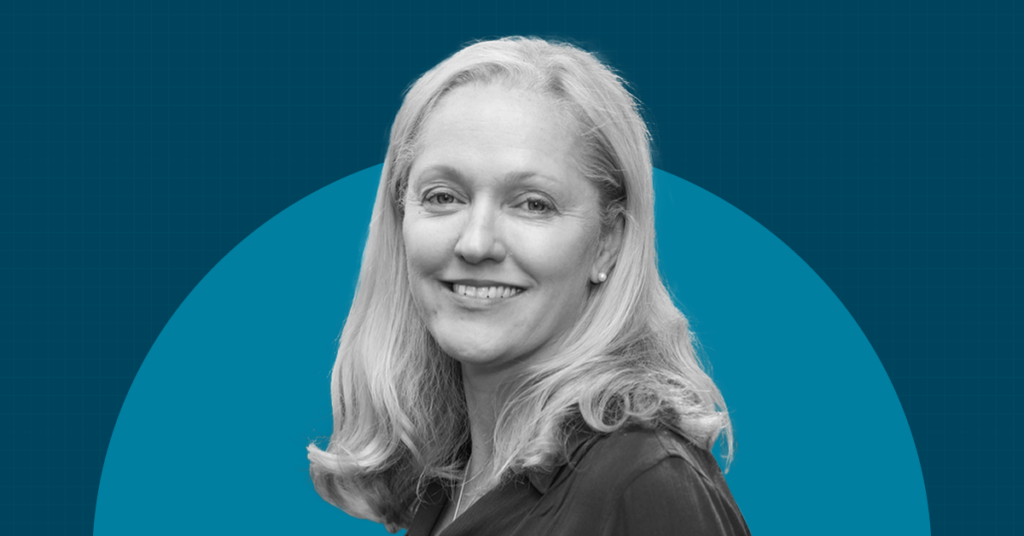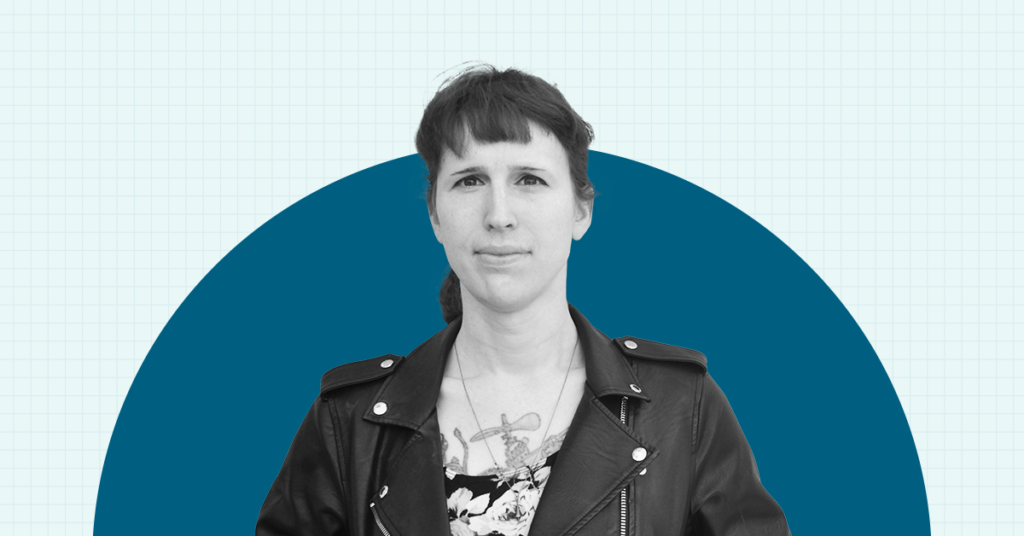Get to Know Noodle’s Senior Vice President, University to Employer, Donna Ritchie
“I have always believed that being dedicated, showing up, and working hard to go the extra mile for teammates and customers is foundational for effective leadership.”
Donna Ritchie is Noodle’s Senior Vice President of University to Employer services. Originally from Chelmsford, Massachusetts. Donna shares that her parents taught her how to reject traditional female stereotypes and she first held leadership roles in high school student council. She shares that education has been life changing. She had the opportunity to attend Penn, with the help of Pell grants and scholarships, where she studied Economics and Japanese. While completing her studies, she found her first career in management consulting which exposed her to many different business challenges and helped her develop strong analytical and communication skills. She pursued her MBA at Harvard Business School, where she further found the importance of education in her career. Her experience led her to work at Parthenon (now EY-Parthenon), where she joined Parthenon’s newly formed education practice. She shares that she was hooked for life after working on exciting business problems and opportunities in K-12, higher ed, ed tech and education-focused nonprofits. She found her calling and has been working in education for the past twenty-two years. Now here at Noodle, she supports her team by coaching them to develop their skills and grow as business leaders–while inspiring them to achieve what’s possible.
What elements or traits does a great leader exhibit?
There are many characteristics of a great leader that we learn about in school and see in the business world every day. Great skills like communication, problem-solving, simplifying issues or challenges, working flexibly, planning, delegating, managing ambiguity, and using analytics are foundational skills for all good leaders. However, what sets great leaders apart is the ability to continually grow and learn, always improving and building from experiences— good or bad. While it is never healthy to dwell on failures, learning from them to be a more effective leader separates good leaders from great ones. In my view, looking forward and applying what you learn will get you farther than almost anything else in business.
When you think of great leadership, who comes to mind? Why?
Ben Franklin has a special place in my heart. My affection for him goes far beyond his role in founding my alma mater, Penn, and shaping Philadelphia, a city I love. Ben is considered the father of collaborative leadership grounded in teamwork. He is known as the leader who brought the Founding Fathers together and facilitated getting the Declaration of Independence and the Constitution over the finish line. He was a great compromiser, helping them to find common ground. For example, Ben devised the bicameral legislative body as a solution to the great debate about how to manage control in a country with large and small states.
Collaboration and compromise are very important for business leaders today as well. I can think of many successes in my career that came from finding the common ground or building on a common theme to find a business deal or decision that works for all parties. In higher ed services, we work with different institutions that have a range of stakeholders and sometimes competing priorities. I have often relied on collaboration to find solutions in higher ed that help bring different groups, such as faculty and administration, together for a solution. A single solution may not be perfect for either group individually but is perfect for finding common ground and meeting our shared goals.
How has your personal leadership style evolved?
Early in my career, I spent more time providing tactical direction versus coaching my teams on how to utilize business logic, strategy, performance frameworks and other broader perspectives in their roles. I quickly found that telling my team “what to do” did not empower them or help them to grow – it simply got the job done. My model evolved to one of coaching and supporting broader frameworks to help the team frame the issues they were facing, how to confidently make the right decisions, and focus on the right things. What has never changed is my commitment to leading by example. I have always believed that being dedicated, showing up, and working hard to go the extra mile for teammates and customers is foundational for effective leadership.
What is it about your background or career experiences that successfully positioned you for your role at Noodle? Describe that role.
Founding and building Meteor Learning prepared me well for my role as the SVP of University to Employer (U2E) services for Noodle. The goal of the U2E team is to develop alignment between higher education and employers. By positioning our clients as talent development partners for employers using business models that reduce recruiting inefficiencies, we help reduce the cost of student acquisition. This also helps us develop employers as a lead generation channel and provide new service offerings geared at employers such as professional development programs.
At Meteor Learning, we focused on the same goals. We differentiated our services by focusing on employer alignment. We created a competitive advantage by developing employer partnerships to recruit prospects and students for our programs. We also found growth opportunities for our partners in professional development—from conferences to employer-branded certificates. As COO of Meteor, I was involved in all aspects of building and delivering the employer-driven strategies for our partners and learned a lot through the experience. I try to use everything I learned building Meteor to help guide and lead the U2E team to success each day.
How do you support the success of your team?
I have a very strong team and I am grateful to them for the skills and dedication they bring to our U2E work. I focus my support on coaching, strategic framing, and simplification. I view my role as a coach—I help my team develop their skills and grow as business leaders while inspiring them to achieve what’s possible. I also use my management consulting background to provide strategic framing for the team. It’s my job to help them to understand the landscape, context and competitive structure of the markets we compete in as a backdrop for planning so the team can make strategic decisions. Lastly, I try to support the team with simplification. I believe good leaders help their team to distill problems and opportunities down to the core issues because the teams that simplify and focus on what matters are the ones that win.
Describe how your career has been enhanced by exposure to diverse people, places or experiences.
Diversity helped Meteor Learning succeed in many ways and I am proud to have been part of the story. Firstly, we worked hard to employ a diverse team and that contributed to our innovation and perspective. Like Noodle, this helped us secure B-Corp status and recruit out-sized talent quality compared to our small company stature. Secondly, we supported diverse programs. Both the MS Data Science at Merrimack and the MS Applied Economics at Boston College had more women than average STEM programs—which still have fewer women students today. We also supported employers such as Flexpro, who focus on bringing women who took career breaks back into the workforce. On the personal side, I try to mentor women students focused on careers in analytics in my free time, and this work has opened my perspectives as well.
What are some of the most effective tools in your leadership arsenal?
Data, data and more data! For teams to be performance driven, they need to understand the facts, interpret them, and then make decisions. Data is the primary tool for understanding how we are performing and what we need to do next. A recent example of the power of data in leadership is in our Nursing Scholars business. We were struggling to devise a school recruiting strategy with a large prospective healthcare system, so we used nursing school graduate data to illustrate the opportunity to improve yield from specific schools. This really got the healthcare system team excited about the size of opportunity for growth and helped us get closer to closing the deal.
Please tell us something about yourself that people would be surprised to learn.
My second project in management consulting took me to Hong Kong where I lived for a year and a half! I experienced the handover of Hong Kong from English to Chinese governance first-hand and my desk was on the trading floor of Bank of America overlooking Victoria Harbor. I was responsible for modeling seven Asian countries which took me all around the region for business and adventure travel. It was quite an experience!



